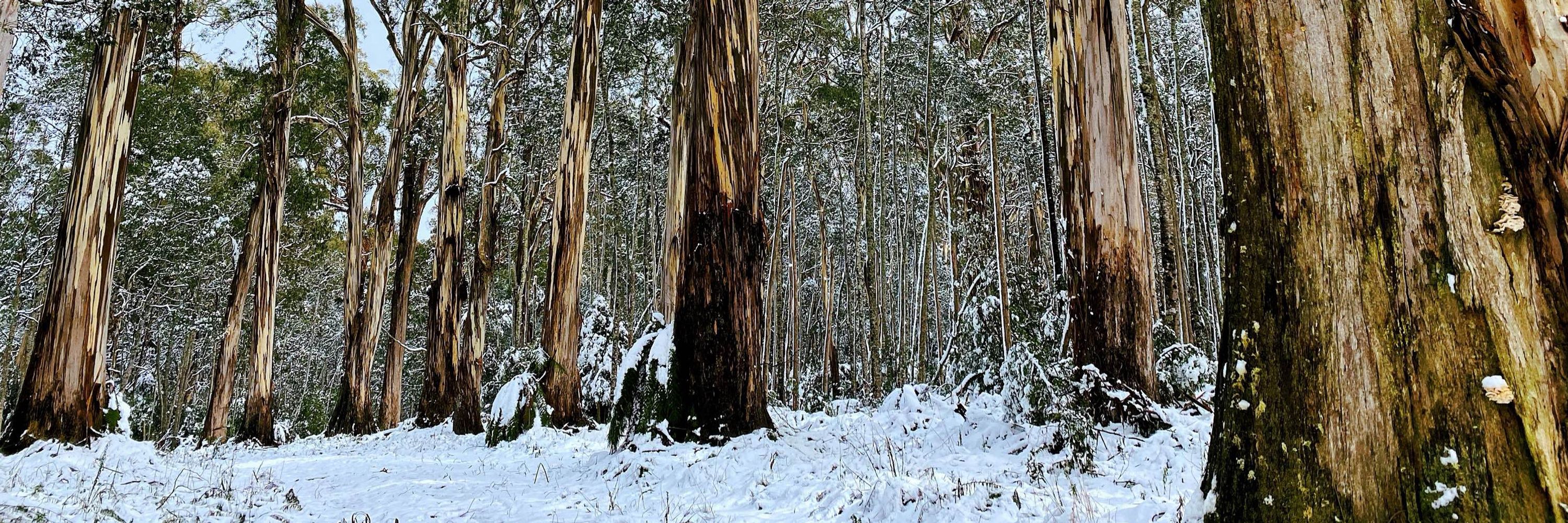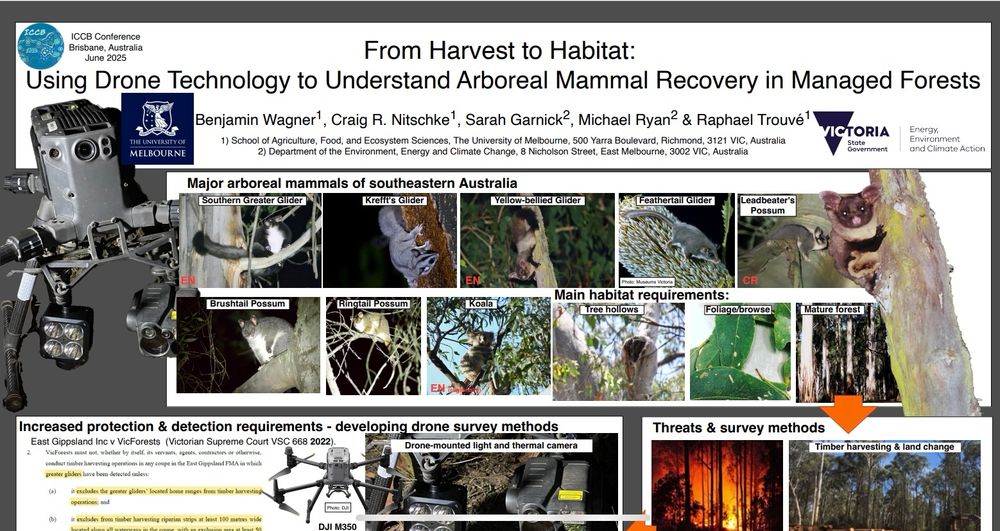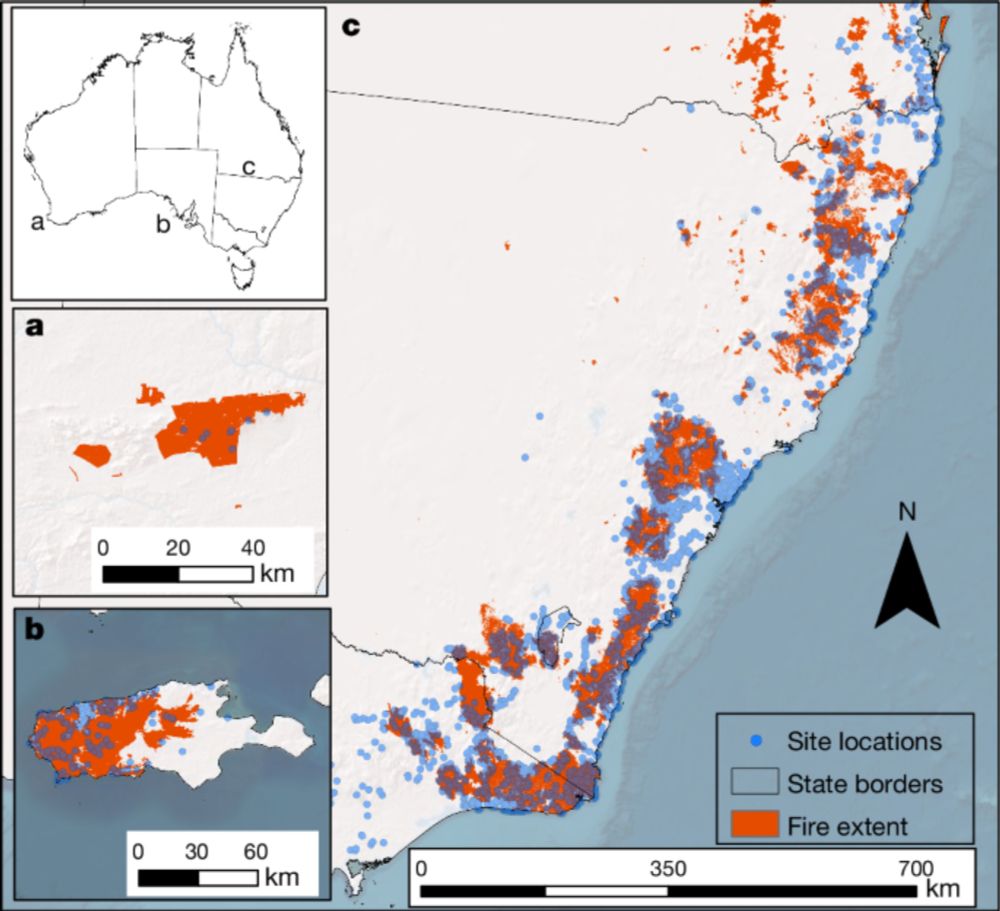
#OpenAccess article: doi.org/10.1002/ecog.08410
🧪 #mycology #ecology #WildOz

#OpenAccess article: doi.org/10.1002/ecog.08410
🧪 #mycology #ecology #WildOz
Find the open access paper here: go.unimelb.edu.au/qjr2

Find the open access paper here: go.unimelb.edu.au/qjr2
Looking forward to hearing what everyone thinks of this one.
For more information, sample pages and to order:
www.dn.com.au/Eucalypts_of...

Looking forward to hearing what everyone thinks of this one.
For more information, sample pages and to order:
www.dn.com.au/Eucalypts_of...







Big thanks to the Gulbali Collaboration Kickstarter award for getting me here.
#EcologicalSocietyOfAustralia #EcologyAustralia #BiodiversityOnTheBrink #Adelaide

Big thanks to the Gulbali Collaboration Kickstarter award for getting me here.
#EcologicalSocietyOfAustralia #EcologyAustralia #BiodiversityOnTheBrink #Adelaide



Looking forward to catch up with friends and colleagues soon!

doi.org/10.1016/j.sc...

doi.org/10.1016/j.sc...
forms.gle/vzxiEycxEtwS...




forms.gle/vzxiEycxEtwS...




Please suggest anyone else who's missing! 🙏
go.bsky.app/5hG9bGW
Please suggest anyone else who's missing! 🙏
go.bsky.app/5hG9bGW
doi.org/10.1016/j.fo...

doi.org/10.1016/j.fo...


@ecolsocaus.bsky.social
@ecolsocaus.bsky.social
news.mongabay.com/short-articl...
link to paper: www.nature.com/articles/s41...
#ecology #PlantScience #nature #plants #biology #science #research #conservation #island

news.mongabay.com/short-articl...
link to paper: www.nature.com/articles/s41...
#ecology #PlantScience #nature #plants #biology #science #research #conservation #island
www.nature.com/articles/s41...

www.nature.com/articles/s41...
In this massive collaboration, >100 Australian ecologists put a novel spin on meta-analysis to discover how fire frequency, interval, unburnt area, pre-fire drought and protected areas modify fire impacts.🌏
www.nature.com/articles/s41...

In this massive collaboration, >100 Australian ecologists put a novel spin on meta-analysis to discover how fire frequency, interval, unburnt area, pre-fire drought and protected areas modify fire impacts.🌏
www.nature.com/articles/s41...
Based on @dadriscoll.bsky.social et al.'s paper out now in Nature www.nature.com/articles/s41...

Based on @dadriscoll.bsky.social et al.'s paper out now in Nature www.nature.com/articles/s41...

